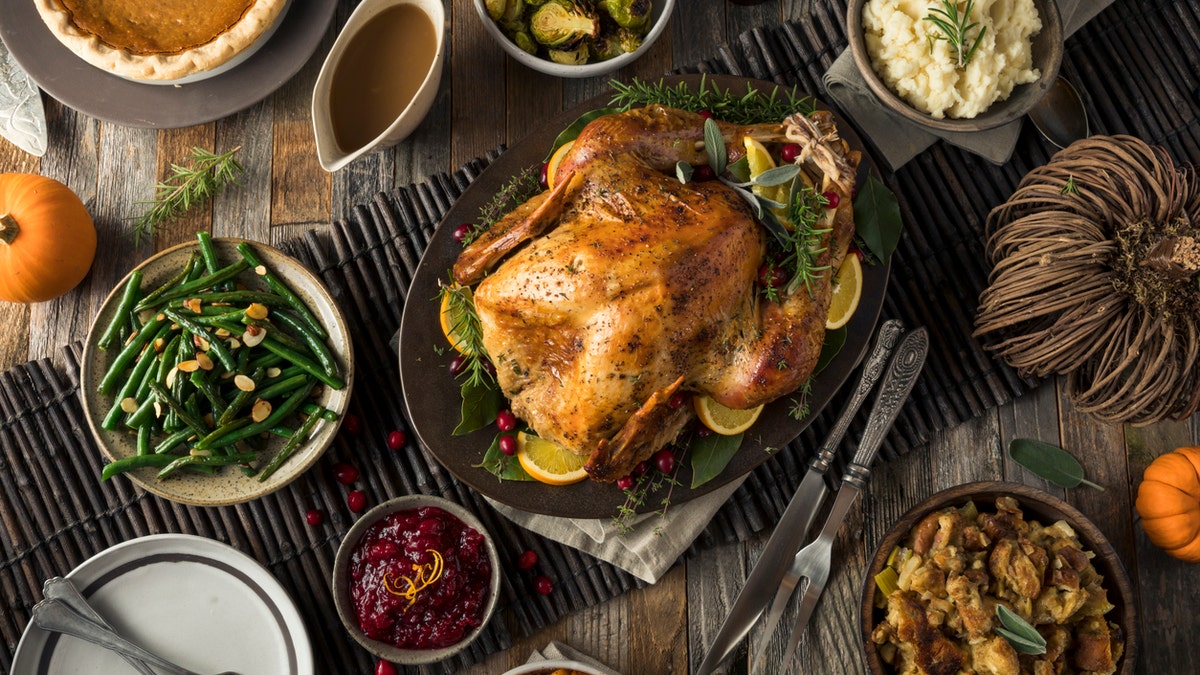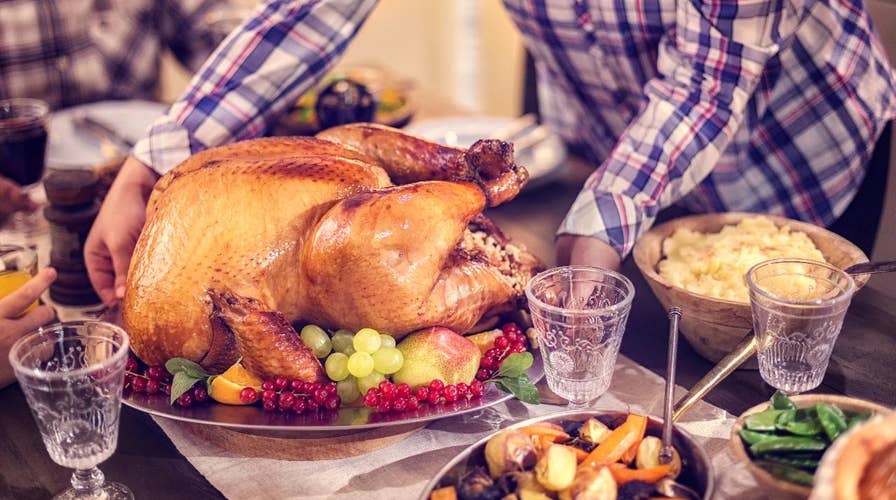Thanksgiving: 5 things you didn’t know
Before you sit down for your festive feast this Thanksgiving, amaze your guests with some fun turkey trivia. Here’s 5 things you probably didn’t know about Thanksgiving.
This holiday season, enjoy your turkey and trimmings -- without a side of food poisoning.
The Centers for Disease Control and Prevention (CDC) says that in the U.S., salmonella causes one million cases annually.
Read on for a look at salmonella and what you can do to avoid getting sick.
What is salmonella?
It’s “a bacterial infection that usually affects the gut” which people can get through food or animals, said Dr. Pauline J. Jose, a family medicine specialist with Proactive Health Labs, a nonprofit which offers health information.
You can be infected through consuming animal products and produce that are contaminated, the Food and Drug Administration (FDA) says.
Symptoms include fever, diarrhea and abdominal cramps, Jose said.
“There are many types of salmonella,” Jose said, adding that “when we talk about the most common ones, we talk about food poisoning.”
People may experience “explosive diarrhea or vomiting or both,” said microbiologist Kiran Krishnan of PeakBiotics, a probiotic supplement manufacturer. He reiterated that other signs include fever and abdominal cramps.
Children under the age of five, people 65 and older and those with compromised immune systems are at the highest risk of getting sick, Jose explained.
Estimates vary, but people may not start exhibiting symptoms until several hours after exposure. In some instances, symptoms don’t show up until three days later, Krishnan said.
Though most cases resolve on their own, others may require hospitalization or be fatal, Jose explained.
How can I prepare and cook my turkey?
The United States Department of Agriculture’s Food Safety and Inspection Service (FSIS) says turkeys can be thawed in the refrigerator, in the microwave and by using cold water.
“Allow approximately 24 hours for each 4 to 5 pounds in a refrigerator set at 40 °F or below,” it recommends. You also shouldn’t cook the bird unless it’s 100 percent defrosted.

When cooking Thanksgiving dinner, there are steps you can take to reduce your risk of getting food poisoning. (iStock)
Ideally, the turkey’s packaging should be immediately discarded once it’s removed, according to Krishnan.
Jose stressed the importance of not rinsing or washing the turkey. By washing the bird in the sink, she explained you’re “likely contaminating everything around you.”
You also want to make sure your turkey is not undercooked. Krishnan recommended using a tip-sensitive digital thermometer and testing in 8 to 10 spots “where it’s a thick meat part” and not near bones, as they can cause a false high temperature reading.
The FSIS says the bird’s temperature should reach at least 165 degrees Fahrenheit.
“Check the temperature in the innermost part of the thigh and wing and the thickest part of the breast,” it recommends.
Jose had a slightly different suggestion, saying that the bird’s temperature should be 160 degrees Fahrenheit around the thigh.
Both Jose and Krishnan stressed to Fox News the importance of cleaning surfaces and any items that have been in contact with raw poultry.
You should wash your hands after handling the turkey and before touching anything else in the kitchen, according to Krishnan.
I have a turducken this year - what should I do?
Making a turducken? Birds should be kept “in the refrigerator no longer than two days before assembling and cooking,” FoodSafety.gov advises.
“If making a turducken with stuffing, make the stuffing first, but keep the wet and dry ingredients separate until you are ready to assemble,” the site says, before deboning your turkey, duck and chicken and putting the turducken together with stuffing.
“Do not assemble the turducken in advance and put it in the refrigerator to cook later,” FoodSafety.gov advises, explaining that when cooking, “the innermost parts of the poultry and stuffing” should reach 165 degrees Fahrenheit.
What about other foods?
Use pasteurized eggs, not raw ones, when preparing dishes like salad dressing or Hollandaise sauce, Jose warned.
She also recommended stuffing be cooked separately from turkey to prevent it from undercooking, and that people keep raw animal products separate from produce.
Produce bought at a grocery store should be soaked in warm water and apple cider vinegar before it’s rinsed off and placed in the refrigerator, Krishnan said. He explained that if anything is contaminated, keeping produce in the fridge prevents bacteria growth.









































